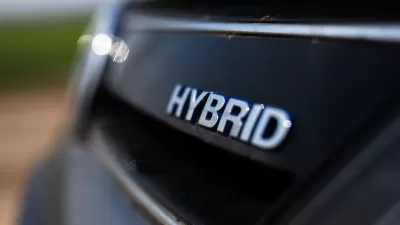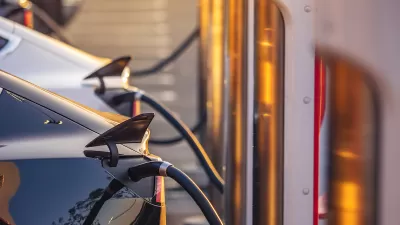At one time in the 1900s, a third of cars in major cities were powered by electric motors. Today, only about 1% of cars are fully electric. Why did we end up with gasoline-powered cars?
In the early 1900s, a series of unfortunate business events drove the country's largest electric vehicle carmaker -- called the Electric Vehicle Company -- into bankruptcy, and it devastated the electric car industry.
"Investors, soured by their experience with the E.V.C., swore they'd never put money into the industry again, and in the lull in electric-car development that followed, gasoline-car companies improved their technology and made their vehicles cheaper", writes Maggie Koerth-Baker of The New York Times. "Over the next 20 years, Americans formed a new idea of what a car was. And from that point on, right up to today, it was hard to get them to try anything else."
So will the US ever get back to electric cars? Koerth-Baker thinks it's possible to change both the infrastructure and culture that supports gasoline-powere cars: "The trick is to not expect people to jump straight from all-gasoline to all-electric. What's necessary is a transitional step that makes electric cars operate more like the cars we're used to driving... [and] hybrids will ultimately help us make that jump."
Thanks to Daniel Lippman
FULL STORY: Why Your Car Isn’t Electric

Coming Soon to Ohio: The Largest Agrivoltaic Farm in the US
The ambitious 6,000-acre project will combine an 800-watt solar farm with crop and livestock production.

Pennsylvania Mall Conversion Bill Passes House
If passed, the bill would promote the adaptive reuse of defunct commercial buildings.

U.S. Supreme Court: California's Impact Fees May Violate Takings Clause
A California property owner took El Dorado County to state court after paying a traffic impact fee he felt was exorbitant. He lost in trial court, appellate court, and the California Supreme Court denied review. Then the U.S. Supreme Court acted.

Dallas Surburb Bans New Airbnbs
Plano’s city council banned all new permits for short-term rentals as concerns about their impacts on housing costs grow.

Divvy Introduces E-Bike Charging Docks
New, circular docks let e-bikes charge at stations, eliminating the need for frequent battery swaps.

How Freeway Projects Impact Climate Resilience
In addition to displacement and public health impacts, highway expansions can also make communities less resilient to flooding and other climate-related disasters.
City of Costa Mesa
Licking County
Barrett Planning Group LLC
HUD's Office of Policy Development and Research
Mpact Transit + Community
HUD's Office of Policy Development and Research
Tufts University, Department of Urban and Environmental Policy & Planning
City of Universal City TX
ULI Northwest Arkansas
Urban Design for Planners 1: Software Tools
This six-course series explores essential urban design concepts using open source software and equips planners with the tools they need to participate fully in the urban design process.
Planning for Universal Design
Learn the tools for implementing Universal Design in planning regulations.

























